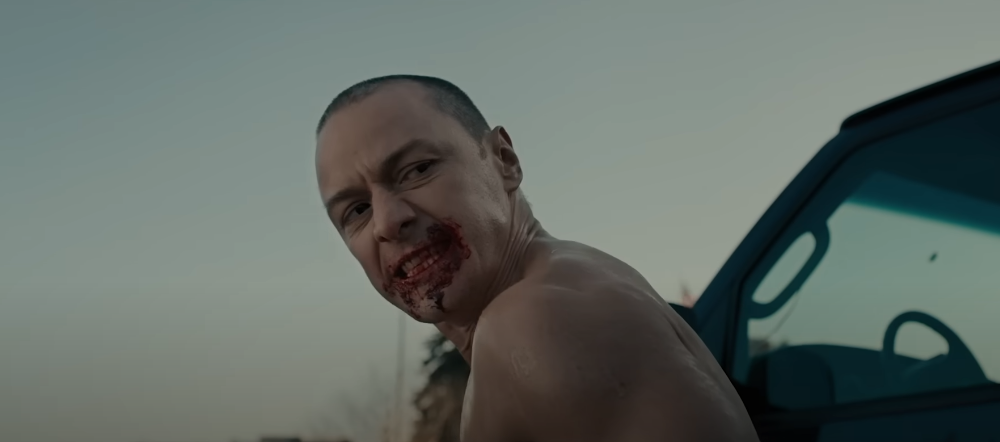M Night Shyamalan’s Eastrail 177 trilogy concluded with Glass. It is a unique approach to the superhero genre with grounded stories. Glass in particular is an interesting film because it tries to do so much and go against the familiar plot points throughout its runtime. The third act is built with surprise after surprise to an excessive length which I normally haven’t seen in other films. Let us reminisce about just what in the devil actually happened in Glass and whether Shyamalan is successful at conveying it.
The Big Showdown: How Glass Subverts Expectations with Its Twists and Tragedies
The first twist the film reveals is that the train destroyed by Mr Glass is significant in Kevin’s life since his father died in that train (there’s a detail in the montage where he reads a book about DID which I found funny). I thought Shyamalan’s twist wizardry had ended right there but no, he had a lot of tricks up his sleeves that he wouldn’t miss to show. We come across a bunch of surprises, Mr. Glass’ plan of showing the existence of their superpower to the world was thwarted by the psychiatrist Dr Ellie, and in that moment we learn that she is actually part of a group that’s responsible for destroying the existence of the superheroes, supervillains and anything out of the ordinary. And then there’s a devastating moment where we see David Dunn, Mr Glass, and Kevin get killed by the group of Dr Ellie.

Normal life goes on for Dr Ellie and the world until she learns that she’s tricked. This is where we see the final rabbit coming out of a magician’s hat aka the real deal. Mr Glass’ plan will be already achieved before his death because of the cameras capturing the big showdown. The video is sent to Mr Glass’ mother who reveals it to Dunn’s son Joseph and Kevin’s friend Casey and together they upload this video to the internet. But do people see it? Do some get inspired by and realize their powers? Mr Glass won but what would come out of their origin story? Does the group of Dr Ellie eventually manage to stop it? It’s all left to us.
I like to think that many people did get to see the video but it would be eventually taken down and demystified by the group of Dr Ellie. Still, the people who saw it will remember it and who knows how many superheroes and villains will come out of that?
Has Mr Glass and Shyamalan’s spectacle made an impact?
Recently Shyamalan explained his process while working on The Visit where once he sat down with his youngest daughter to do a one thousand-piece puzzle, it was difficult for both of them. Then, they decided to find just one piece that fit into another one. They continued their game with this plan which made Shyamalan think “I have faith that there is a picture here well let me just approach life like that”.

The pivotal characters in the trilogy struggle to find their place in the world and they grapple with their identity. After realizing their superpowers, they go on doing what they think they ought to do. David Dunn becomes a superhero who people name ‘The Overseer’, Mr. Glass upon discovering his nemesis thinks he has a purpose to be a villain (the mastermind), and Kevin’s life is spent on disturbing who he calls ‘pure’ and rejoices with the ‘broken’. With the help of Kevin and Overseer, Mr Glass manages to show their existence to the world. But is Shyamalan’s storytelling successful in Glass?
Though some twists have the nature of drawing away the fans of its previous films like Unbreakable and Split, the film takes a brave decision and does it anyway. Dr Ellie’s arguments aren’t convincing to doubt the superpowers of the characters but what it does is put us, the audience, and the characters in a vulnerable stage. It’s only because of that when David Dunn finally regains his faith in his superpower and breaks the metal door which an ordinary person can’t do, it becomes a powerful moment. With Glass, Shyamalan takes a big swing and though not all of his tricks work, there’s an interesting picture here and it feels rewarding to watch a film as bold and ambitious as this.

Chaitanya Tuteja is someone who enjoys sharing his thoughts on books, movies, and shows. Based in India, he appreciates exploring different stories and offering honest reflections. When not reflecting on his favorite media, Chaitanya enjoys discovering new ideas and embracing life’s simple moments.

